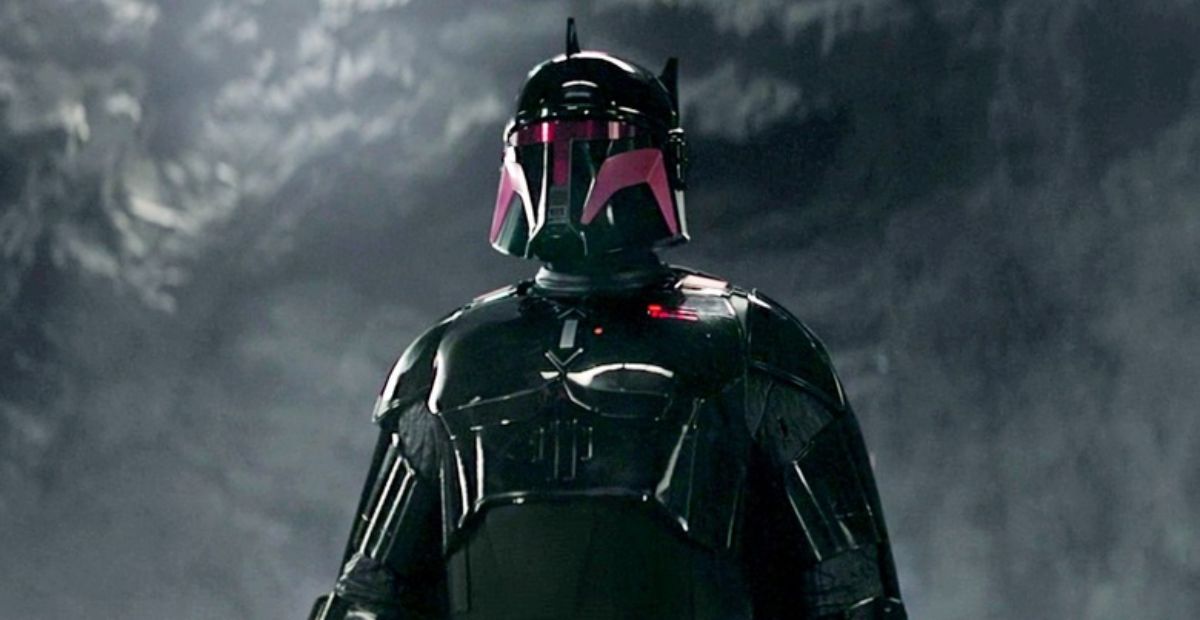Moff Gideon’s actions throughout The Mandalorian series might seem like those of a man obsessed with Mandalorians, but that’s not quite accurate. He wasn’t interested in their people, their honor, or their way of life, he was after what they had: beskar, power, and legacy.
Everything he did was part of a calculated strategy. He stripped Mandalorians of their armor to hoard their metal. He forged a new Imperial suit out of beskar to make himself untouchable. And when it came to the Darksaber, the one symbol that held Mandalorian culture together, he used it not to unify, but to divide. Gideon knew exactly how much it meant to Mandalorians, and he turned that knowledge into a weapon.
1. Gideon Wasn’t Obsessed with Mandalorians; He Wanted Their Beskar
Moff Gideon appeared fixated on the Mandalorians, yet his real goal was their rare and invaluable metal: beskar. Known across the galaxy for its near-indestructible properties, beskar can withstand blaster fire and lightsaber strikes, making it incredibly desirable. After the Empire’s collapse, Gideon sought to exploit beskar’s strategic potential to bolster his military forces and ensure dominance amidst the galaxy’s chaos.
Throughout Season 1, Episode 3 (“The Sin”), Gideon systematically targeted Mandalorian enclaves, not out of interest in their culture or people, but solely to strip them of their armor.
In Season 3, Episode 7 (“The Spies”), Gideon explicitly reveals his strategic intentions upon appearing in full Mandalorian armor himself, clearly stating: “Mandalore will live on in me. Thanks to your planet’s rich resources, I have created the next generation Dark Trooper suit forged from beskar alloy.” This emphasizes his plans to exploit Mandalore’s beskar resources to create a formidable, armored Imperial force. He demonstrated no hesitation in sacrificing entire communities to gain possession of the precious metal, revealing his cold, tactical mind.
2. Control Over Beskar Meant Tactical Superiority
Gideon understood exactly how valuable beskar was from a tactical standpoint. By equipping his forces with armor and weapons made from beskar, Gideon could ensure their dominance on any battlefield. Beskar armor was virtually impenetrable, easily deflecting blaster fire and lightsaber strikes, giving his troops a decisive advantage over resistance fighters and former Rebel forces.
We clearly see Gideon’s plans in action with the introduction of the Dark Troopers in Season 2. These formidable battle droids reflect Gideon’s ultimate ambition: creating a force that was not only powerful but practically indestructible. His meticulous planning and execution demonstrated a deep understanding of warfare tactics, turning Mandalorian resilience into a psychological weapon to instill fear and submission across the galaxy.
3. Gideon Exploited the Darksaber to Undermine Mandalorian Unity
What’s even more telling about Gideon’s so-called “obsession” with Mandalorians is that he didn’t just want their beskar—he understood their culture, their traditions, and most importantly, the significance of the Darksaber. Through The Mandalorian series, we see that Gideon didn’t merely want to exploit Mandalore’s resources; he wanted to claim a form of legitimacy as its ruler by wielding the very symbol of Mandalorian leadership.
In the Season 2 finale, The Rescue, he doesn’t just lose a fight to Din Djarin—he turns the Darksaber into a political weapon. After Din defeats him in combat, Gideon taunts Bo-Katan with a chilling line:
“I believe this is the part where you return the Darksaber to its rightful owner. Now, surrender the Darksaber, and tell these people that this planet is mine.”
He knows Bo-Katan can’t simply take the Darksaber unless she wins it in combat. By allowing Din to claim it instead, Gideon traps her. She can either break tradition or challenge Din and risk splintering their unity. That’s not just a clever move, it’s targeted psychological warfare.
Gideon had no interest in honoring Mandalorian heritage or rebuilding their world. What he cared about was control. By holding the Darksaber, he destabilized their leadership from within, turning their cultural values into weapons against themselves. He didn’t need an army to break them, just one ancient blade and the insight to know exactly what it represented.

